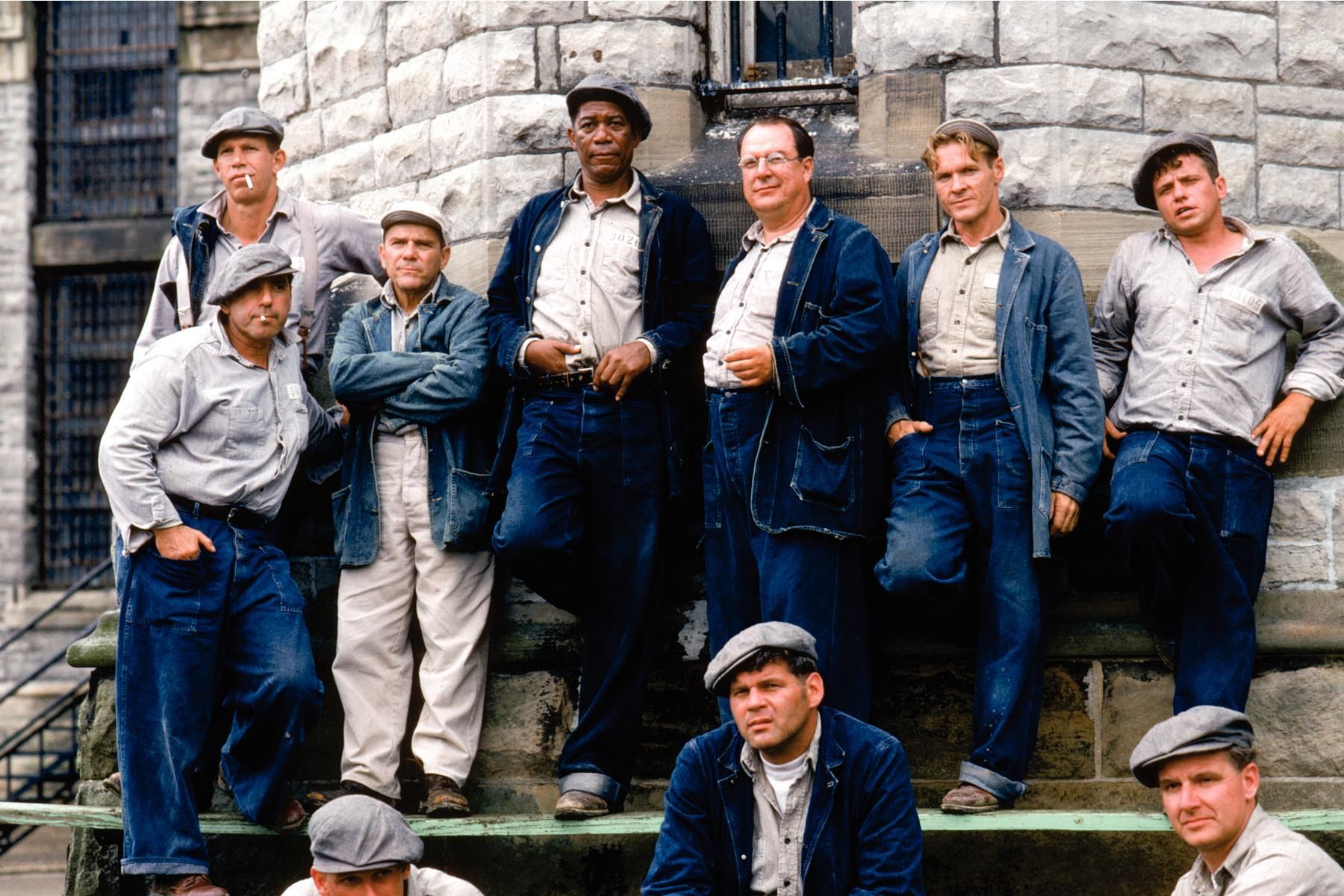_
Hope
- Get link
- X
- Other Apps
The Shawshank Redemption (1994)
"In its 25 years plus, The Shawshank Redemption has emerged as an unlikely entry in the contest for the most beloved movie of all time. It’s not quite at those other movies’ level, but it’s not quite not at their level, as it’s spent the last 11 years as the No. 1-rated movie on IMDb."
The Shawshank redemption theatrical demise is infamous, as it earned just $28 million domestically on a $25 million budget. It got seven Oscar nominations, losing to the likes of “Forrest Gump” and “Pulp Fiction,” but it became the top-rented movie of 1995. Ted Turner started blasting it all over TNT and TBS, where it’s aired more than 100 times, says Michael Quigley, the networks’ executive vice president of content acquisitions and strategy, helping it become one of the few movies “made by cable.”
Although the hero of the film is the convicted former banker Andy Dufresne (Tim Robbins), the action is never seen from his point of view. The film's opening scene shows him being given two life sentences for the murder of his wife and her lover, and then we move, permanently, to a point of view representing the prison population and particularly the lifer Ellis 'Red' Redding (Morgan Freeman). It is his voice remembering the first time he saw Andy ("looked like a stiff breeze would blow him over"), and predicting, wrongly, that he wouldn't make it in prison.
From Andy's arrival on the prison bus to the film's end, we see only how others see him - Red, who becomes his best friend, Brooks the old librarian, the corrupt Warden Norton, guards and prisoners. Red is our surrogate. He's the one we identify with, and the redemption, when it comes, is Red's. We've been shown by Andy's example that you have to keep true to yourself, not lose hope, bide your time, set a quiet example and look for your chance. "I guess it comes down to a simple choice, really," he tells Red. "Get busy livin' or get busy dyin'."
ANDY That there are things in this world not carved out of gray stone. That there's a small place inside of us they can never lock away, and that place is called hope. RED Hope is a dangerous thing. Drive a man insane. It's got no place here. Better get used to the idea.
Darabont constructs the film to observe the story, not to punch it up or upstage it. Upstaging, in fact, is unknown in this film; the actors are content to stay within their roles, the story moves in an orderly way, and the film itself reflects the slow passage of the decades. "When they put you in that cell," Red says, "when those bars slam home, that's when you know it's for real. Old life blown away in the blink of an eye. Nothing left but all the time in the world to think about it." Watching the film again, I admired it even more than the first time I saw it. Affection for good films often grows with familiarity, as it does with music. Some have said life is a prison, we are Red, Andy is our redeemer. All good art is about something deeper than it admits.
RED (V.O.) I hope I can make it across the border. I hope to see my friend and shake his hand. I hope the Pacific is as blue as it has been in my dreams. (beat) I hope.'It tanked at the box office': Frank Darabont and Morgan Freeman on The Shawshank Redemption's path from flop to classic
The Stephen King prison drama bombed commercially on its initial release in 1994, failing to claw back its modest budget.Now, many regard it as a cinematic masterpiece. In 2004, its director Darabont told the BBC about its remarkable reversal of fortune.
When The Shawshank Redemption came out 30 years ago this week, it seemed to have all the ingredients of a box-office smash.
After all, it was based on a novella by one of the world's best-selling authors, Stephen King, so it looked as if a ready-made fanbase would be interested in seeing it. Indeed, another story, The Body, taken from the same 1982 collection, Different Seasons, had been turned into a hugely successful movie, Stand by Me, in 1986. Director and screenwriter Frank Darabont believed that the story was so filmic that in 1987 he bought the rights to adapt it himself. "I found the story, Stephen King's story, so compelling, really, and so touching that to me it was just natural as a movie," he told Stuart Maconie on BBC4 programme The DVD Collection in 2004.
https://www.bbc.com/culture/article/20240919-the-shawshank-redemptions-path-from-flop-to-classic
The power of hope
Freeman himself put the movie's initial box-office failure down to its name. "The only real marketing that movies get I think is word-of-mouth," he told The Graham Norton Show in 2017. "Although people went to see The Shawshank Redemption and they came back and [said], 'Oh man, I saw this really terrific movie, it's called the… er… Shanksham? Shimshawnk?' One lady saw me in the elevator one time and said, ‘Oh, I saw you in the Hudsucker Reduction'. So, if you can't get word across, then it just doesn't do well."
But The Shawshank Redemption was to have its own redemption arc, as it found a new life in the home-video market. With its release on VHS, the film's story of human resilience, friendship and the power of hope resonated with an audience that had missed it at the movie theatre. "We became the most rented video of 1995. Just boom, boom. And then that word-of-mouth from that audience began to grow and grow and grow," Darabont told the BBC in 2004.














.jpg)